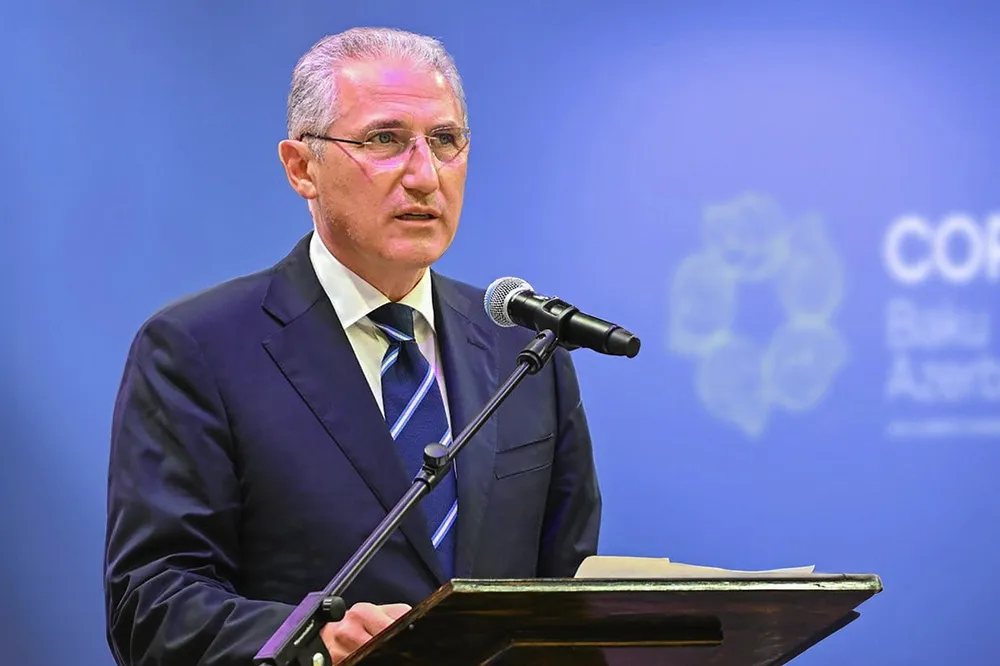Azerbaijan's COP29 hosts put energy storage at the heart of summit action plan
Azerbaijan also promotes new voluntary fund from fossil fuel producers but hard push for renewables is conspicuous by its absence

The organisers of the COP29 climate summit — due to take place in oil-producing Azerbaijan 11-22 November — have proposed a six-fold increase in global energy storage capacity and the creation of a fair transition fund financed by fossil fuel producers among their ambitions for the event, but have made no mention of any plan to phase out fossil fuels.
With less than one month to go before the next UN-organised Conference of the Parties kicks off in Baku, the COP29 Presidency unveiled a list of initiatives as part of its “Action Agenda” to accelerate progress on climate action.
In a letter addressed to Parties and stakeholders, COP29 President-Designate Mukhtar Babayev's proposals included a pledge to raise global energy storage capacity to 1.5TW by 2030 – some six times higher than it was in 2022 – and to scale up investments in grids so as to add or refurbish more than 80m kilometres by 2040.
The pledge was described as reinforcing the "implementation and operationalisation" of the global stocktake and the COP28 Declaration on tripling renewable energy and doubling energy efficiency.
"Our initiative is helping to implement the previous achievements.. and in a sense, it brings synergy and coherence between the COPS," said Jala Ibrahimova, one of the COP29 Action Agenda co-leads.
The Action Agenda also claimed to reflect Azerbaijan’s capabilities and special contributions to the fight against climate change and stressed the country’s interest in increasing the contribution of fossil fuel companies and nations.
Initiatives included a new climate finance action fund, capitalised with voluntary contributions targeting the most vulnerable conflict-affected groups, as well as agricultural communities and broader human development, by "catalysing public and private sectors across mitigation, adaptation, and research and development".
The new fund will also offer facilities for concessional and grant-based funding to rapidly address the consequences of natural disasters in developing countries in need.
“It will be the first time in history that we as COP29 host country will initiate a fund that will be sourced by the fossil fuel countries as a move of sharing their responsibility and their intention to assist developing countries, while demonstrating leadership in global efforts,” COP29 lead negotiator Yalchin Rafiyev told a press briefing.
He suggested that the fund would become a major forum for private sector companies to exercise corporate responsibility in funding resilience and mitigation efforts in developing countries.
The Action Agenda did not mention phasing out fossil fuels within the context of any mitigation plans, despite pressure in this direction from some of the Western countries that will participate in COP29.
Other initiatives included:
- declarations for governments to include sectoral targets and strategies in national climate plans for action on methane from organic waste, tourism and water
- a COP29 Hydrogen Declaration for the public and private sectors to unlock the potential of a global market for clean hydrogen and its derivatives with guiding principles and priorities to address regulatory, technological, financing, and standardisation barriers.
- a COP Truce Appeal to shine a spotlight on the climate-conflict nexus.
Launching the COP29 Action Agenda, Babayev said: “ We seek to inspire every actor and demonstrate what is possible with commitment and determination, and we never underestimate the value of an individual contribution. We hope to remind everyone that even in the face of such an enormous challenge, every action matters because every fraction of a degree matters.”
(Copyright)